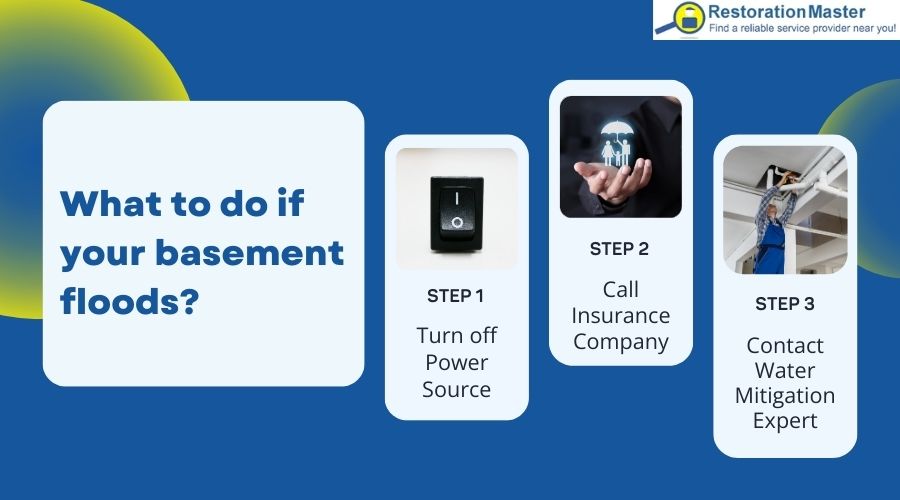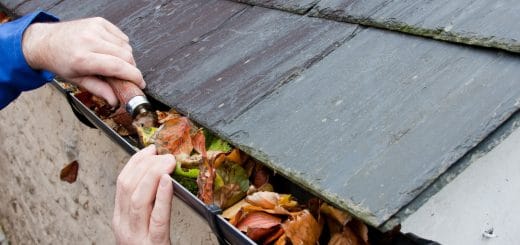How to Protect Your Basement from Rainwater Flooding
Many homeowners cherish their basements as versatile spaces—whether for storage, laundry, or even a cozy family hangout. But when heavy rain rolls in, that basement can quickly become a source of stress if water starts seeping in. FloodingFlooding is the overflow or accumulation of water in areas t... More not only risks damaging your belongings but can also leadLead is a heavy metal that can be toxic to humans, especiall... More to mold and structural issues that are costly to fix.
The good news? You can take proactive steps to keep your basement dry and secure. With a bit of effort and some smart strategies, you can significantly reduce the chances of rainwater intrusion. In this post, we’ll explore practical tips to protect your basement from floodingFlooding is the overflow or accumulation of water in areas t... More, ensuring it stays a safe and usable part of your home.
Tips for Protecting Your Basement from Rainwater Flooding
Here are some helpful tips to ensure your basement remains dry and protected from the threat of floodingFlooding is the overflow or accumulation of water in areas t... More.
1. Install a Sump Pump
A sump pumpA sump pump is a pump installed in a basement or crawlspace ... More is your first line of defense against basement floodingFlooding is the overflow or accumulation of water in areas t... More. This device actively removes excess water from your basement, significantly reducing the likelihood of moldMold is a type of fungus that grows in damp or humid conditi... More and mildewMildew is a type of fungus that grows on damp surfaces, typi... More growth. For those living in areas prone to heavy rainstorms, a sump pumpA sump pump is a pump installed in a basement or crawlspace ... More becomes even more indispensable. Consider installing a battery backup system to ensure your pump operates even during power outages.
2. Seal Cracks in Your Foundation
Over time, small cracks can develop in your foundation walls and basement floors, creating pathways for water to seep in. To tackle this issue, inspect your foundation regularly and seal any visible cracks. Most cracks can be addressed from the inside, allowing you to fortify your basement without the hassle of excavating around your foundation. Using a high-quality epoxy or polyurethane sealant can provide long-lasting protection against water intrusion.
3. Install and Maintain Gutters
Properly functioning gutters are crucial in preventing rainwater from pooling around your home’s foundation. Make sure your gutters are installed correctly and direct water away from your basement. Additionally, regular maintenanceMaintenance is the routine care, inspection, and repair of a... More is essential; aim to clean your gutters at least once a year to remove leaves, dirt, and other debris. Clogged gutters can leadLead is a heavy metal that can be toxic to humans, especiall... More to overflow, which might ultimately leak into your basement.
4. Utilize Downspout Extensions
To further protect your foundation, consider installing downspout extensions. These extensions will direct rainwater at least 4–6 feet away from your home, ensuring that water doesn’t collect near your basement walls. This simple addition can make a significant difference in reducing water-related issues.
5. Install Window Well Covers
Basement windows can be vulnerable points for water entry, especially during heavy rainfall. Installing window well covers can effectively prevent floodingFlooding is the overflow or accumulation of water in areas t... More and protect your basement from damage caused by rainwater accumulation. These covers also help keep out debris, which can further impede water flow.
6. Seal Around Windows and Doors
Gaps around basement windows and doors can serve as entry points for water. To combat this, use caulk or expanding foam to seal any openings. This not only helps prevent rainwater from entering your basement but also improves energy efficiency by reducing drafts.
What to Do if Your Basement Floods

Stumbling upon a flooded basement in your home can be an overwhelming experience. In the event that you find your basement already flooded, here are some steps you can take to address the situation:
- Turn off power sources: When water damage is found in a basement or a damp area, it is important to shut off any power sources such as electricity and gas to avoid any potential accidents. Never enter an area that has been flooded with water while the power is on; an electric shock can occur if you do not exercise caution. If you are unsure how to shut off the electricity and gas, it’s always best to contact a qualified electrician before attempting to go into the room. Following these safety measures will ensure your well-being while you take care of the flooded area in your home.
- Contact your insurance company: If you have flood insurance, it is important to call your home insurance company right away to report the damage caused by the flood. Discussing with an agent will help you confirm your coverage limits, deductible amount, and claim procedures in order to start the filing process. Doing so will get the claims process going and help prevent any further issues from arising later down the line. In addition, a home insurance representative can walk you through every step of submitting a claim for flood damage. Keeping this dialogue open will ensure that you stay informed and on top of getting reimbursed for any losses incurred by flood waters.
- Reach out to a water mitigation professional: A flooded basement is not something to take lightly; standing water can cause irreparable damage not just to the structureStructure refers to the framework or components of a buildin... More of your home, but also to your belongings. In such a circumstance, swift action is necessary in order to minimize the damage and prevent further destruction.
Call a Professional Water Damage Restoration Service

Contacting a professional water damage restoration team is the best course of action, as they are experienced in cleaning and restoring flooded areas with proven repairRepair is the act of fixing or restoring damaged property, m... More techniques. Professional assistance ensures that everything from structural repairs to disposal of damaged belongings will be taken care of quickly and efficiently for maximum protection against further destruction.
Protecting your basement from rainwater damage is an important task for homeowners, as floodingFlooding is the overflow or accumulation of water in areas t... More can result in costly repairs if not taken care of quickly enough after it occurs. The key steps involved include maintaining gutters and downspouts, landscaping around the perimeter of the foundation walls, and sealing up any cracks that may be present in these walls with caulk or sealer. With proper preventionPrevention refers to actions taken to reduce the likelihood ... More measures like these in place, you should be able to protect your home against any potential flood damage caused by heavy rainfall.
Frequently Asked Questions
How to remove musty smell from basement after floodingFlooding is the overflow or accumulation of water in areas t... More?
Water damage can leadLead is a heavy metal that can be toxic to humans, especiall... More to moldMold is a type of fungus that grows in damp or humid conditi... More growth, which typically starts developing within 24 to 48 hours if conditions are right. MoldMold is a type of fungus that grows in damp or humid conditi... More thrives in damp environments and can create a musty smell that indicates its presence.
- Remove any standing water using a pump or wet/dry vacuum.
- Use fans and dehumidifiers to dry out the space completely.
- Open windows and doors to let fresh air in.
- Wash surfaces with a mix of water and detergent.
- Get rid of any furniture or items that are too damaged to clean.
- For carpets or fabrics, consider deep cleaning or replacing them.
- Place bowls of baking soda or vinegar around the basement to absorb smells.
- Activated charcoal bags can also help eliminate odors.
Can clogged gutters cause basement floodingFlooding is the overflow or accumulation of water in areas t... More?
Clogged gutters can indeed leadLead is a heavy metal that can be toxic to humans, especiall... More to basement floodingFlooding is the overflow or accumulation of water in areas t... More. When gutters are blocked with leaves, dirt, and debris, they lose their ability to channel rainwater away from your home. This causes water to overflow and accumulate around the foundation. If the ground is poorly graded or if there are cracks in the foundation, this excess water can easily seep into the basement. To prevent floodingFlooding is the overflow or accumulation of water in areas t... More, it’s crucial to keep your gutters clean and well-maintained.
Does sump pumpA sump pump is a pump installed in a basement or crawlspace ... More have minimum basin height?
A sump pumpA sump pump is a pump installed in a basement or crawlspace ... More does require a minimum basin height for optimal performance. The basin needs to be deep enough to collect water and allow the pump to operate without running dry.
Most sump pumpA sump pump is a pump installed in a basement or crawlspace ... More basins are at least 18 to 24 inches deep, but this can vary based on the pump model and your specific situation.












